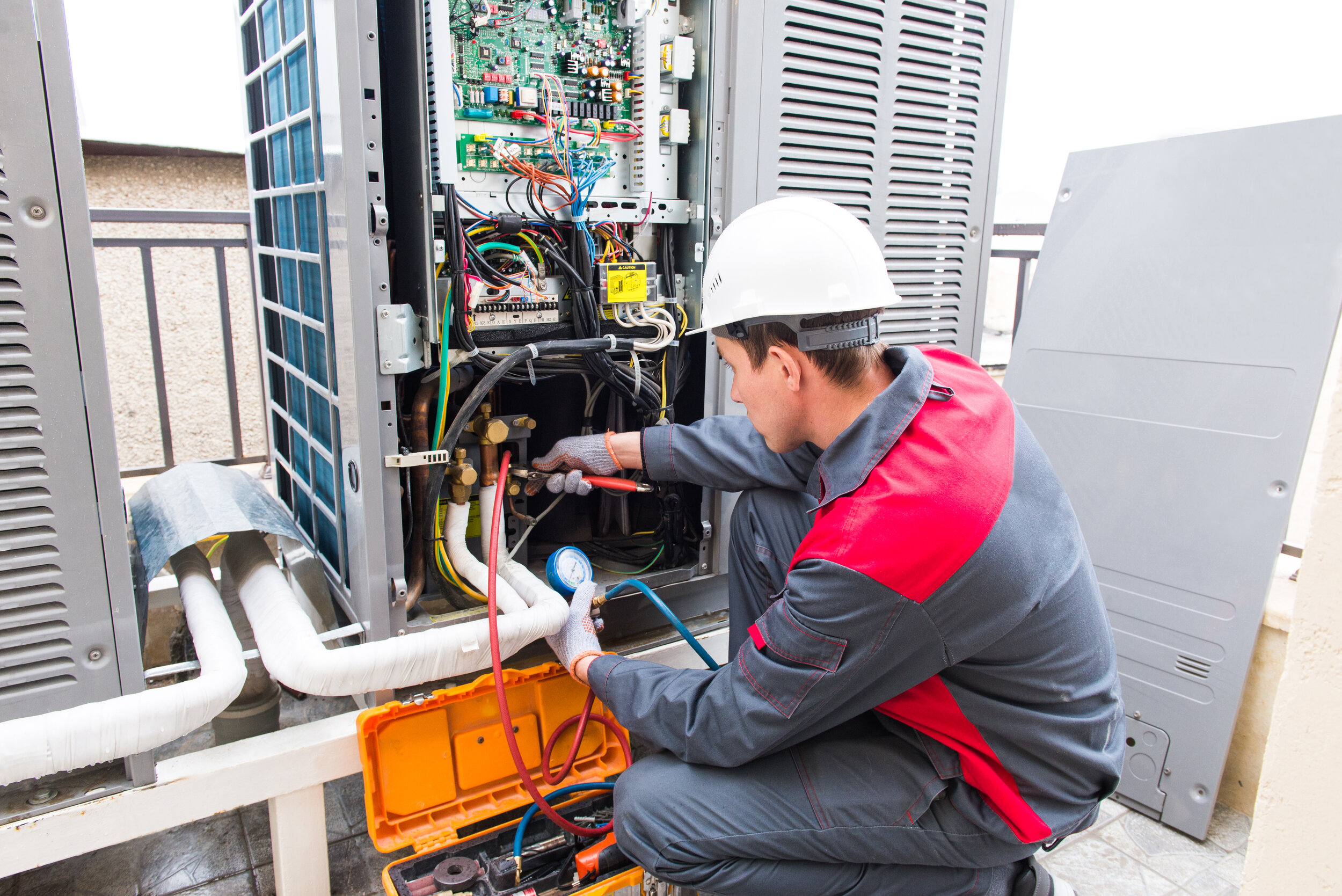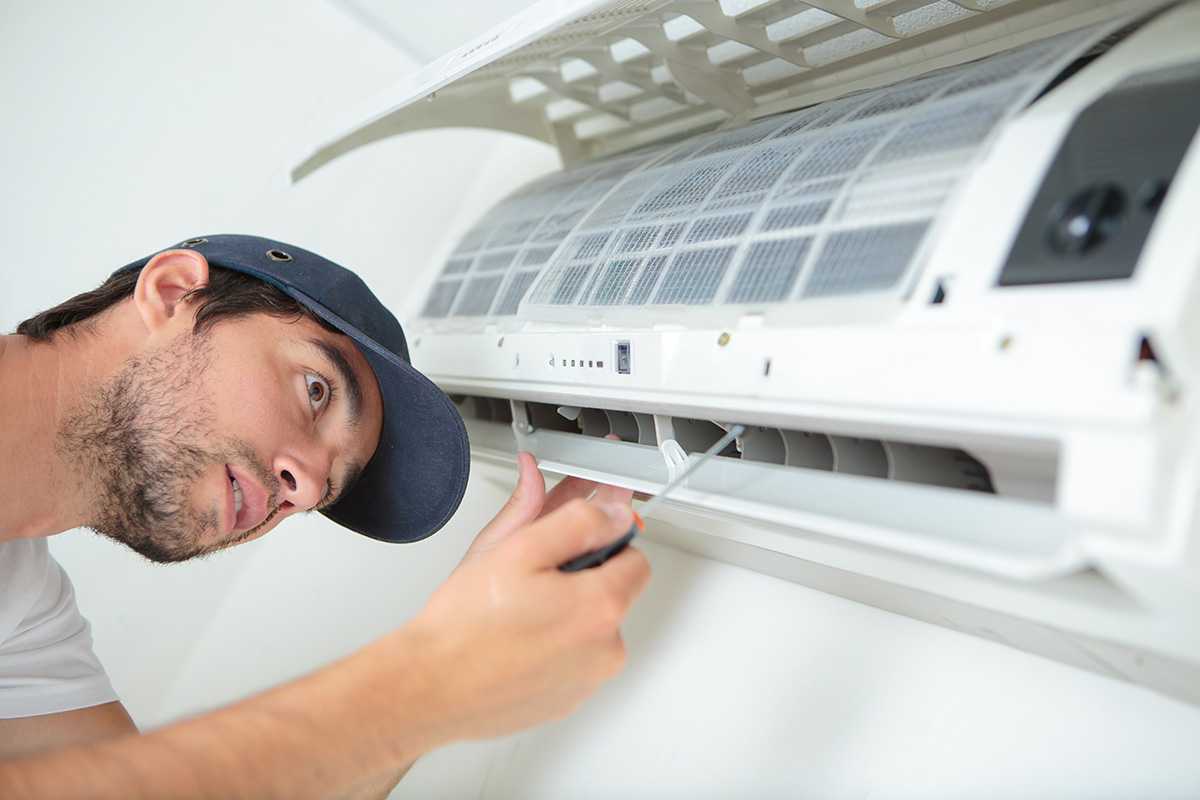An HVAC system (Heating, Ventilation, and Air Conditioning) is essential for maintaining comfort in your home or business. Whether you’re looking to install a new system, need repairs, or simply want to understand how your HVAC system works, understanding the fundamentals can help you make informed decisions about its maintenance and upkeep.
This blog breaks down the basics of HVAC services, their benefits, and how to choose the right services for your needs.
What Is HVAC and How Does It Work?
HVAC stands for Heating, Ventilation, and Air Conditioning, which collectively work to control the temperature, air quality, and humidity levels inside a building. Here’s a quick overview of each component:
-
Heating: This part of the system maintains a warm temperature during colder months. Furnaces, heat pumps, and boilers are common heating devices that use either electricity, gas, or oil.
-
Ventilation: This process ensures a constant flow of air throughout your home, removing stale air and replacing it with fresh outdoor air. Proper ventilation reduces pollutants and humidity, improving indoor air quality.
-
Air Conditioning: Air conditioners cool the air during warmer months. The most common types of air conditioning systems include central air, ductless mini-splits, and window units.
Why Regular HVAC Maintenance Is Essential
Maintaining your HVAC system is crucial to ensure it works efficiently, extends its lifespan, and keeps your home comfortable year-round. Here are some key benefits of regular HVAC maintenance:
-
Improved Efficiency: Regular tune-ups and cleaning ensure your HVAC system runs at peak performance, reducing energy consumption and lowering your monthly utility bills.
-
Prolonged Lifespan: With proper care, your HVAC system can last for many years, saving you the cost of premature replacements.
-
Better Air Quality: A well-maintained HVAC system helps filter out dust, allergens, and pollutants from the air, ensuring better air quality and a healthier indoor environment.
-
Avoid Costly Repairs: Preventative maintenance catches small problems before they turn into expensive repairs or system breakdowns.
Common HVAC Services You Should Know About
-
HVAC Installation: Whether you’re building a new home or replacing an old system, professional HVAC installation ensures your system is properly sized and set up for maximum efficiency.
-
Repairs and Troubleshooting: If your system isn’t functioning properly, a licensed HVAC technician can diagnose the issue and provide repairs. Common issues include faulty thermostats, refrigerant leaks, and malfunctioning motors.
-
Seasonal Tune-ups: HVAC technicians recommend getting your system checked at least twice a year—before the heating season and the cooling season. This helps keep your system in top shape and avoids emergency breakdowns.
-
Indoor Air Quality Solutions: Many HVAC service providers offer solutions like air purifiers, humidifiers, and UV lights to improve the air quality inside your home.
-
Duct Cleaning and Sealing: Over time, dust, debris, and even mold can accumulate in your ducts, affecting airflow and air quality. Regular duct cleaning and sealing improve system performance and health.
How to Choose the Right HVAC Service Provider
When choosing an HVAC service provider, it’s important to consider the following:
-
Experience and Licensing: Always hire a licensed and insured HVAC technician with a proven track record. Check reviews and testimonials from past clients to gauge reliability.
-
Emergency Services: Look for companies that offer 24/7 emergency services. HVAC problems can occur at any time, and it’s essential to have a reliable professional available when you need them most.
-
Energy Efficiency Knowledge: A good HVAC provider should be well-versed in energy-efficient solutions. They can help you choose systems that lower energy costs and reduce your carbon footprint.
-
Service Plans and Warranties: Some companies offer service plans that include regular maintenance visits, discounts on repairs, and priority service. Inquire about warranty options for new installations and repairs.
Frequently Asked Questions (FAQs)
1. How often should I have my HVAC system serviced?
It’s recommended to schedule a professional maintenance check for your HVAC system at least twice a year—once before the heating season and once before the cooling season. This ensures your system runs efficiently throughout the year.
2. What are the signs that my HVAC system needs repair?
Some common signs that your HVAC system needs repair include:
-
Unusual noises (like banging, rattling, or hissing)
-
Inconsistent or weak airflow
-
Strange smells coming from the system
-
Frequent cycling (turning on and off often)
-
Increased energy bills despite normal usage
3. How long should an HVAC system last?
On average, an HVAC system lasts between 10 to 15 years with proper maintenance. However, if your system is over 10 years old and experiencing frequent issues, it may be time to consider a replacement.
4. How can I improve the energy efficiency of my HVAC system?
To improve energy efficiency:
-
Replace air filters regularly (every 1-3 months)
-
Seal any air leaks in ducts and windows
-
Upgrade to a programmable thermostat
-
Get regular HVAC tune-ups to ensure the system is running smoothly
-
Consider upgrading to a more energy-efficient HVAC system
5. What’s the difference between a furnace and a heat pump?
A furnace uses gas, oil, or electricity to generate heat, while a heat pump moves heat from the outside air into your home during winter and works as an air conditioner in the summer. Heat pumps are generally more energy-efficient in mild climates but may not be as effective in extremely cold conditions.
6. How can I improve my indoor air quality with HVAC?
Improving indoor air quality can be done by:
-
Replacing air filters regularly with high-efficiency filters
-
Installing air purifiers, humidifiers, or UV lights within the HVAC system
-
Regularly cleaning ducts to remove dust, mold, and debris
-
Ensuring proper ventilation throughout the home
Conclusion:
HVAC systems play a crucial role in maintaining comfort, air quality, and energy efficiency in your home. Regular maintenance, proper installation, and timely repairs can keep your system running smoothly for years to come. Whether you need a quick fix or a complete system upgrade, working with a professional HVAC service provider will ensure you get the best results.



